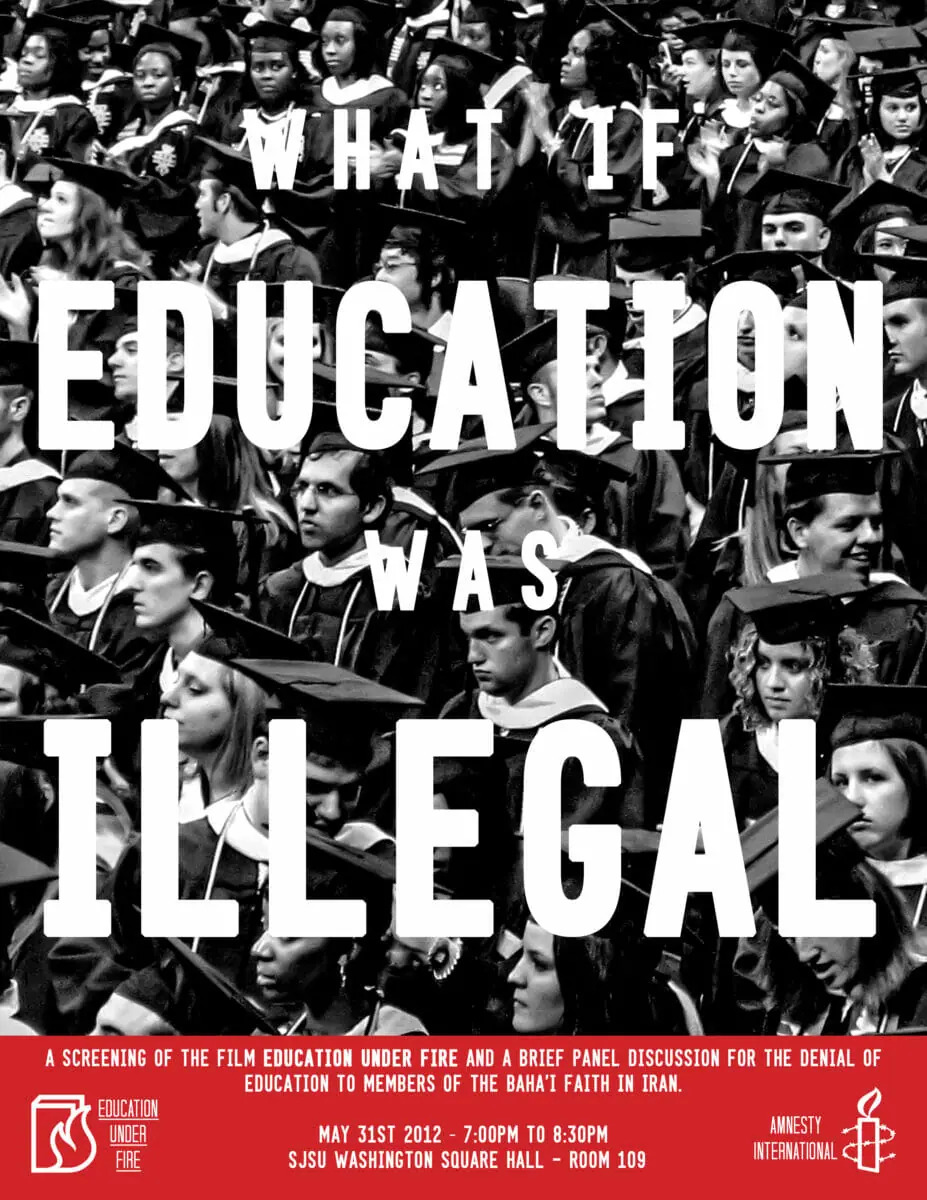
With no voiceover narration, Education under Fire allows the Baha’i from Iran to tell stories on their own terms. On Thursday Nov. 1, Amnesty International and members of Halifax’s Baha’i community hosted a screening of the documentary about the denial of higher education to the Baha’i people in Iran. Around 20 people viewed the film at Dalhousie.
“’It’s not about religion, it’s not about politics, it’s about people not having access to education,” said Ryan Brennen, a member of the Halifax Baha’i community, who initiated the screening. “I guess it goes back to the question, ‘Do you think one person can make a difference?’ If you do, which I do … then we should stand up for everything we believe in.”
According to the International Federation of Human Rights, the Iranian government persecuted Baha’i since the inception of the faith in the mid-19th century. Being Baha’i meant rejecting the Islamic faith, and parties in power targeted them to divert attention away from other national issues, says Shahrough Akhavi, author of Religion and Politics in Contemporary Iran.
Since 1978, 201 Baha’is have been executed in Iran because of religious affiliation, says a document published by FIDH titled ‘Discrimination against religious minorities in Iran’. As a result of international outrage, the oppression of Baha’i people is no longer as violent. Now, the Iranian government restricts the 300,000 Baha’i people from receiving higher education.
“If you have a (Baha’i) child that’s bright and wants to go on and study, then you’re out. There’s no education for you,” said Will Naylor, a member of the 200-strong Baha’i community in Halifax.
“Their intention now is not only to persecute the Baha’is, but to rip the plant right out of the ground, roots and all, and get rid of it completely.”
In 1987, the Baha’i Institute for Higher Education was founded as an informal institution for Baha’i people in Iran. According to the film, the Iranian government tapped phones and checked mail. Face-to-face teaching took place in apartments doubling as classrooms. Correspondence courses were also offered.
In May of 2011, the government raided the school and confiscated computers, books and other scholarly materials. Eight teachers and administrators of the BIHE were arrested and charged with four- and five-year prison sentences. 3,000 students depended on the school, and when it was shut down, their education was cut off.
Although short, Education under Fire explains the history of the persecution of Baha’i people in Iran and issues they still face. Former BIHE students, UN reps and professors all discuss how the denial of higher education to Baha’is a removes opportunity, and is a human rights violation.
After the screening, Dal professor John LeBlanc spoke to the audience about his experience with the BIHE. A member of the Baha’i faith and correspondence teacher with the school, he was teaching an online course when the attack took place. He contacted his students and asked if they wanted to keep learning. “They said, ‘Yes, please continue,’” he said.
“They said they were not going to let this oppression stop them. People, in spite of this oppression – their spirits were indomitable.”
Despite this hopeful glimmer of resilience, Baha’i access to higher education remains illegal in Iran. One part film, one part campaign, the objective on Thursday was to raise public awareness and to call for action. The film’s website features an open letter to the Iranian government asking for the release of the BIHE prisoners, and to end the practice of denying higher education on the basis of religious beliefs.


Recent Comments